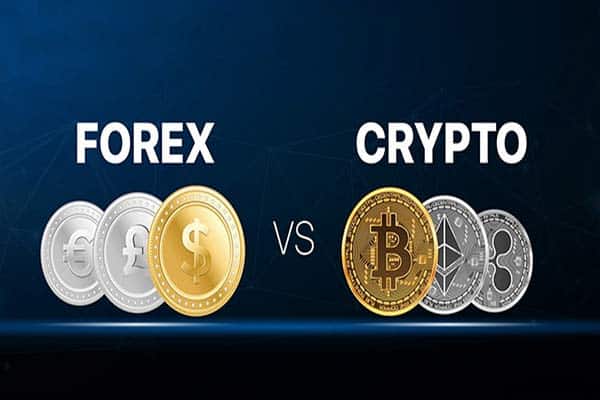
As a new year dawns, people worldwide are looking to reassess their finances and sources of income. And with the pandemic looking likely to be keeping people stuck at home for a little while longer, there’s little doubting that careers like online trading will continue to be popular. But it’s a mysterious world for many. What exactly is the split between asset classes like forex and crypto, and what differences can a trader expect to encounter? This article will explain.

Timing and hours
Perhaps the main difference between foreign exchange and cryptocurrency trading is that the former is time-restricted while the latter is not. The foreign exchange markets are open 24hours a day in different parts of the world, which means that forex – both in its “actual” form and as derivatives, or CFDs – is available to buy and sell depending upon where you are located. At any time, at least one market will be open somewhere in the world. Crypto, which is highly internationalized and not linked to particular financial centers’ business hours, can be traded anytime.
Volatility and risk
Both of these asset classes are relatively volatile, at least compared to other options such as government bonds. Traders are advised to always do their independent risk assessment before plowing ahead with trading and ensure they have a thorough understanding of their own risk profile. On the whole, cryptocurrency – perhaps because of its newness – is particularly risky and has seen enormous price volatility in recent years. But forex can be risky too, especially if a curveball market-moving event like a snap general election or an unexpected interest rate change occurs – so it’s certainly not a guaranteed profit-maker.
Private trading
Finally, traders need to know that there are significant differences between these two asset classes regarding privacy. Extensive anti-money laundering and ‘know your customer’ rules are in force across the traditional financial services sector. Forex brokers are covered, and you’re likely to need to divulge lots of information before you can trade.
That isn’t necessarily the case in the crypto world. Cryptocurrency operates on the blockchain, which is decentralized and can, in theory, be traded. Crypto brokers like StormGain do not have onerous know your customer rules – although they are increasingly the exception. The exact level of privacy you’ll receive as a crypto trader does depend on your jurisdiction. Some countries have introduced stricter rules around crypto trading in recent years, and you may be expected to give more information to buy and sell cryptocurrencies.
There are lots of crucial differences between foreign exchange and cryptocurrency trading. Whether it’s the timeframes in which you can trade or the amount of information required by relevant brokers, there’s a lot to think about. Given these differences, it’s a good idea for new traders to wise up about two asset classes and learn more about what each one has to offer before deciding which is right for them.


